We all know that education is a vital aspect of our society, but unfortunately, there are some significant challenges that we need to address.
One of the main issues is the lack of access to quality education, especially for those living in low-income areas or marginalized communities.
It’s hard to see that some children have to travel long distances to reach schools, and even when they do, the facilities and resources may be inadequate. This inequality in education is a real problem, with disparities based on socioeconomic status, gender, ethnicity, and disability.
While getting students into classrooms is essential, we must also ensure that they receive a high-quality education. Insufficient resources, undertrained teachers, outdated curriculum, and overcrowded classrooms can hinder the learning experience.
We should strive to provide an education that prepares students for the future and equips them with the necessary skills.
The new academic structure, NEP 2020 aims to remove these barriers the students face. We at SETU, already in sync with NEP 2020, understand that education is not just about academic excellence; it’s about nurturing well-rounded individuals who possess strong character, critical thinking abilities, and a sense of social responsibility.
We aim to deliver quality education and instill the best values in our students, empowering them to become future leaders.
In this blog, we will explore on the significance of quality education in driving national development and its transformative power.
Importance of Quality Education:
The National Education Policy acts as a guiding framework that outlines the priorities, goals, and strategies to be implemented in the education system. It emphasizes the significance of quality education as a catalyst for national development across multiple dimensions.
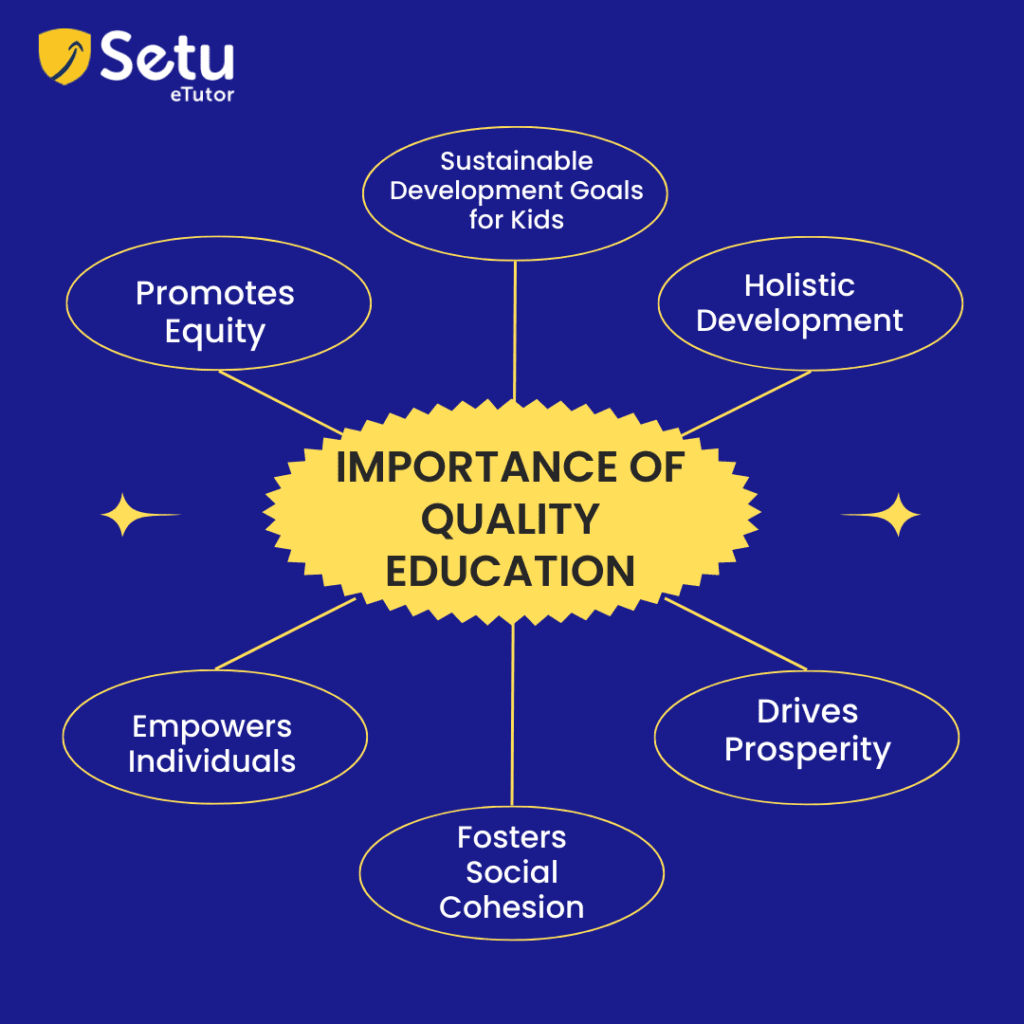
NEP focuses on the key attributes of quality education. They are:
- Promotes Equity: Quality education lays the foundation for a more equitable society by breaking the cycle of poverty, reducing inequalities, and promoting gender equality.
- Sustainable Development Goals for Kids: It plays a pivotal role in achieving global development objectives, addressing social challenges, and fostering sustainable development .
- Holistic Development: Quality education focuses on the holistic development of students, encompassing social, mental, physical, emotional, cognitive, and economic aspects. It ensures that every learner receives comprehensive support regardless of their background.
- Empowers Individuals: A well-delivered education equips individuals with the knowledge and skills needed for better job prospects, sustainable livelihoods, and a healthy lifestyle. It nurtures innovation and fosters creative thinking.
- Fosters Social Cohesion: Quality education cultivates resilient communities and contributes to creating peaceful, democratic societies. It promotes tolerance, understanding, and active participation in civic life.
- Drives Prosperity: By empowering individuals, communities, and society as a whole, quality education paves the way for prosperity. It enables social and economic progress, improving living standards and overall well-being.
How can Quality Education be Attained?
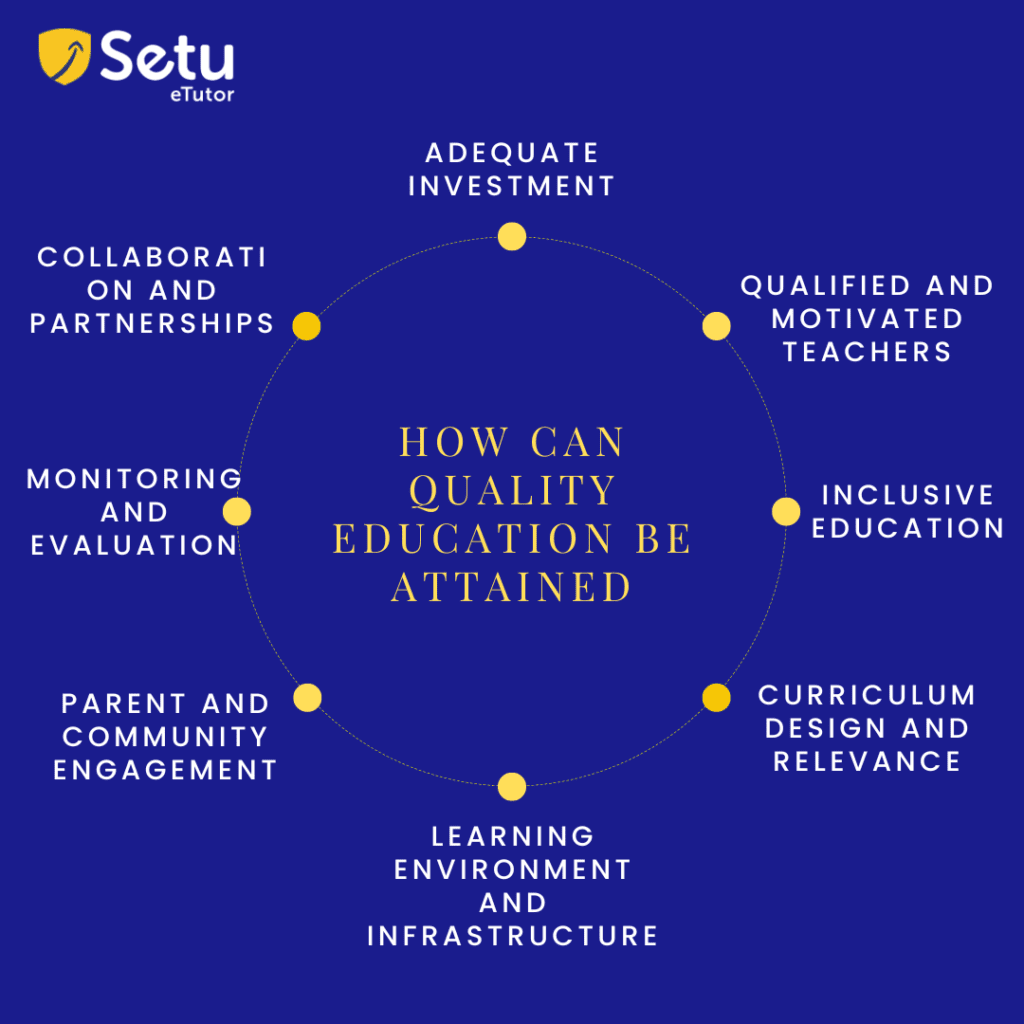
Attaining quality education requires a comprehensive and multi-faceted approach involving various stakeholders.
Here are some key factors that contribute to achieving quality education:
- Adequate Investment: Governments and relevant authorities must allocate sufficient resources to the education sector. It includes funding for infrastructure development, teacher training, curriculum enhancement, and educational materials and technology access. Adequate investment ensures that schools have the necessary resources to provide quality education.
- Qualified and Motivated Teachers: Quality education relies on competent and motivated teachers. Efforts should be made to attract, train, and retain highly qualified educators with subject expertise and pedagogical skills. Continuous professional development programs and support systems should be in place to ensure that teachers stay updated with the latest teaching methods and practices.
- Curriculum Design and Relevance: The curriculum should be designed to meet the needs of the 21st-century world. It should balance academic knowledge, practical skills, and values-based education. The curriculum should be regularly reviewed and updated to align with societal changes, technological advancements, and global trends.
- Inclusive Education: Quality education should be inclusive and accessible to all individuals, regardless of their socioeconomic background, gender, ethnicity, or disabilities. Inclusive education ensures that every learner receives appropriate support, accommodations, and opportunities to thrive academically and personally.
- Learning Environment and Infrastructure: Schools should provide a safe, supportive, and conducive learning environment. It includes well-equipped classrooms, libraries, laboratories, and access to modern technology. Adequate facilities, including clean water and sanitation, provide a positive learning experience.
- Parent and Community Engagement: The involvement of parents and the wider community is essential for quality education. Collaborative efforts between schools, families, and communities foster a supportive learning environment and reinforce the importance of education. Parental engagement programs and community partnerships can enhance students’ academic achievements and well-being.
- Monitoring and Evaluation: Regular monitoring and evaluation systems should be in place to assess the quality of education provided. It helps identify areas for improvement, track progress, and make data-driven decisions to enhance the effectiveness of educational programs and policies.
SETU AI-based reminders help teachers, parents and students in continuous monitoring and tracking of their progress and identify the areas of improvement.

- Collaboration and Partnerships: Collaboration among various stakeholders, including governments, educational institutions, NGOs, and private sector organizations, is crucial for achieving quality education. Partnerships can leverage expertise, resources, and innovative approaches to address challenges and implement effective strategies.
How Does SETU Help in Achieving Quality Education?
At SETU, we firmly believe in the paramount importance of quality education for national development. We emphasize the following things:
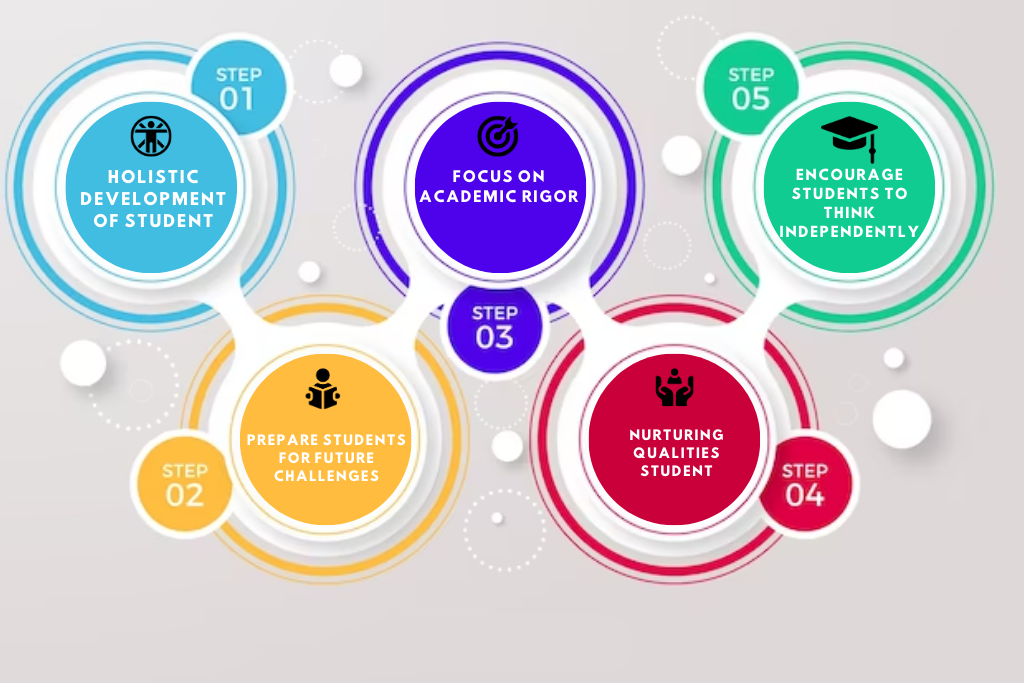
- Holistic development of students and equipping them with the knowledge, skills, and values they need to succeed in an ever-evolving world.
- Focus on academic rigor, creativity, critical inquiry, and experiential learning through a balanced curriculum.
- Encourage students to think independently, express their ideas confidently, and embrace innovation.
- Prepare students for future challenges and instill a lifelong love for learning.
- We prioritize character education, nurturing qualities such as empathy, integrity, resilience, and leadership.
Conclusion:
In conclusion, education is crucial for personal growth and societal development. SETU strives to provide quality education to children nationwide, leveraging technology to make it accessible to all.
We at SETU believe in a balanced approach, where learning, play, and extracurricular activities complement each other. Visit our website for NEP updates, and join us in shaping a brighter future for our children and society. Contact us today.

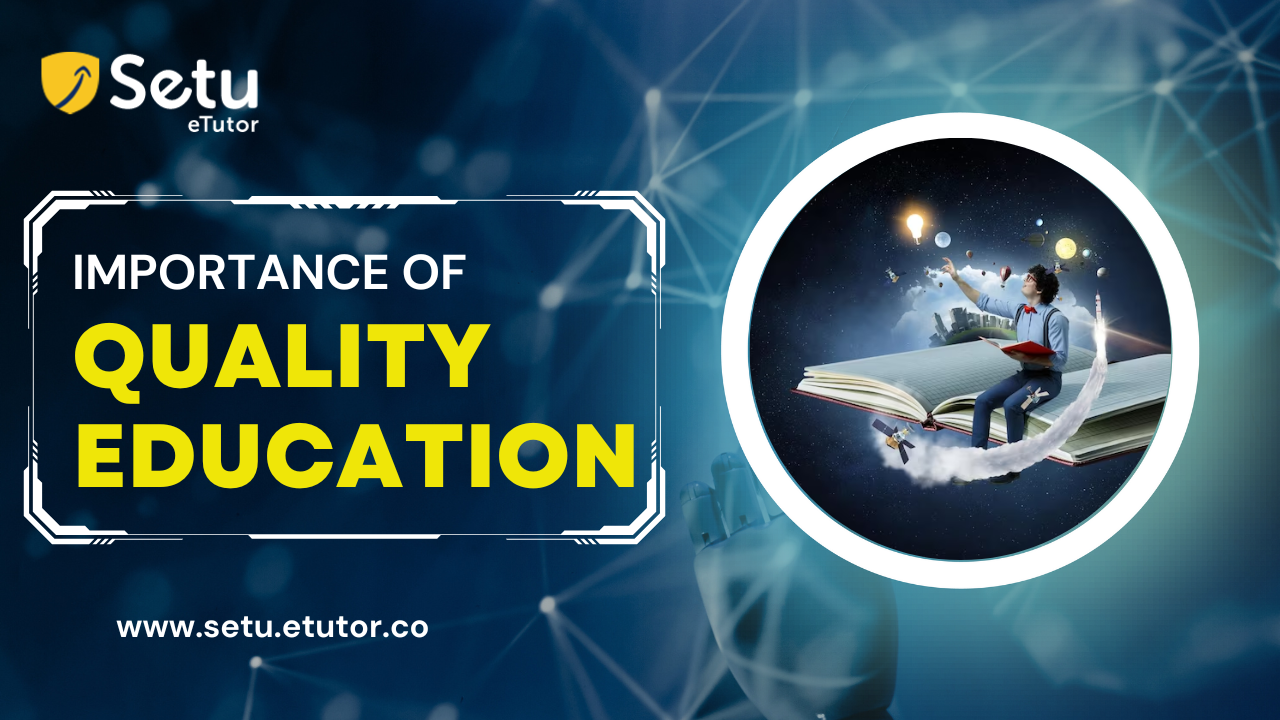


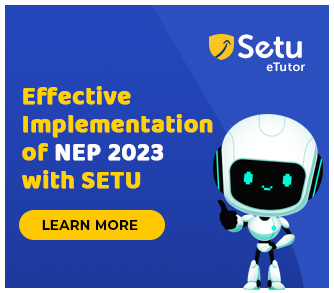
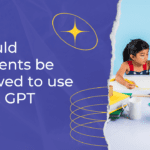
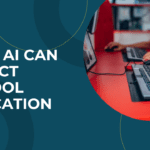
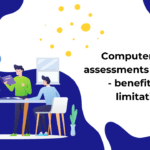
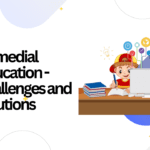
Leave a reply